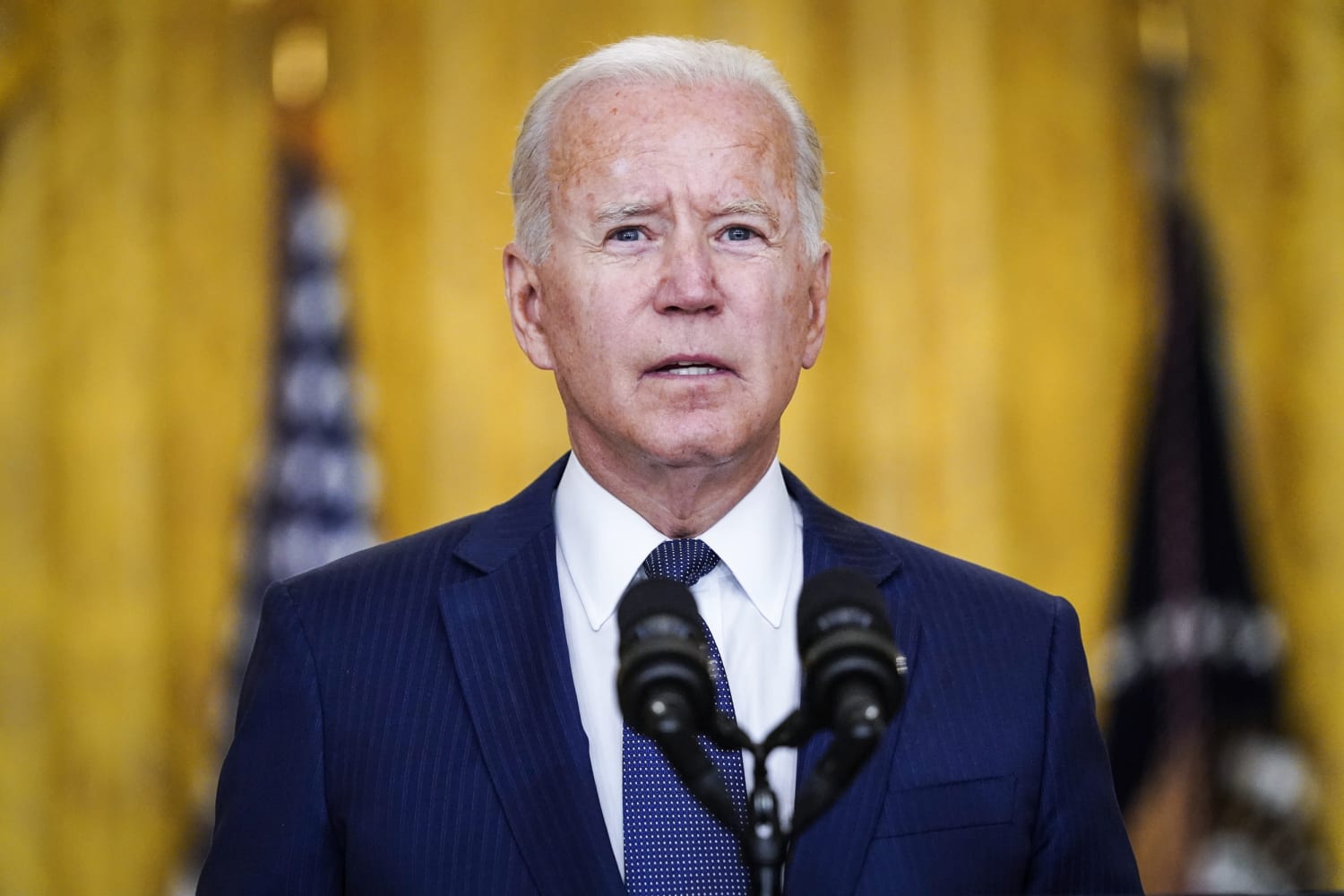WASHINGTON — Declaring an end to the “forever war,” President Joe Biden said he would “turn the page” on two decades of foreign policy marred by the U.S.’s invading and then trying to remake Afghanistan. But the page was turning long before Biden took office.
In the years since the terrorist attacks of Sept. 11, 2001, Americans’ appetite has soured for large-scale, ambitious efforts to take on adversaries and entangle the military in far-flung corners of the world. Biden administration officials say that’s one reason they’re confident that, through the wide-angle lens of history, his legacy will be having ended the war, not having presided over its disastrous final weeks.
Yet as America approaches the 20th anniversary of the terrorist attacks, Biden’s pledge to close the chapter raises questions about whether the U.S. can maintain its influence and power through diplomacy alone.
“Our strategy has to change,” Biden said Tuesday during a victory lap touting the “extraordinary success” of the airlift that marked the end of military operations in the country. “This decision about Afghanistan is not just about Afghanistan. It’s about ending an era of major military operations to remake other countries.”
Although it was Biden who turned off the lights in Afghanistan, insisting that the U.S. must “learn from our mistakes,” the broader signs that the U.S. was turning away from overseas distractions have been accumulating for years.
Former President Barack Obama preached a humbler U.S. approach that encouraged other countries to step up. And it was former President Donald Trump who, with his “America First” mantra, turned the inclination toward nativism and isolationism that has taken root among some Americans into his driving foreign policy doctrine.
“There’s direct linkage between the Trump and Biden foreign policy, to my shock,” said Douglas Brinkley, a presidential historian at Rice University. “This idea that America has to be more of a fortress nation and start extracting itself from places around the world is sending mixed signals.”
The scenes of desperation and chaos in Kabul in the twilight of a war that spanned four presidencies has obscured the picture of who bears ultimate responsibility for the outcome, especially as Biden insists that his hands were tied by Trump’s last-minute deal with the Taliban.
Polls indicate that Americans largely agree with Biden about pulling out of Afghanistan but disagree with how he handled it.
Biden agrees with Trump about pulling out of Afghanistan, but he disagrees with how Trump handled it.
To be sure, Biden has never espoused “America First.” Stylistically, he and Trump couldn’t be more different. In fact, Biden, who has sought a clear break from the Trump years, when the U.S. shunned cooperation with allies, traveled to NATO headquarters in June to declare that America was back.
Still, the hurried exit from Afghanistan has deepened skepticism among other countries about whether they can still rely on the U.S. to counter the most destabilizing threats as Biden calls for avoiding “large-scale troop deployments.” Would the U.S. still act, for example, if China were to invade Hong Kong or Russia were to mount another incursion into Ukraine?
“The fundamental obligation of a president, in my opinion, is to defend and protect America,” Biden said. “We must stay clearly focused on the fundamental national security interest of the United States of America.”
Matthew Kroenig, a former defense and intelligence official now at the Atlantic Council, said the frenzied withdrawal has delivered “a big blow to U.S. credibility,” not only with U.S. adversaries but also with allies, many of whom fought alongside the U.S. in Afghanistan.
“NATO countries were somewhat caught off-guard that his decision was made without much consultation. They felt they had no choice but to get out once the U.S. left,” Kroenig said. “And then there’s the reputational issue of all these promises we made to Afghans and letting them down.”
Biden’s aides say it is a false choice to suggest that the U.S., by rejecting nation-building, is turning inward, arguing instead that avoiding major foreign military entanglements frees the U.S. to advance its interests through cooperation with other countries.
And in his speech, Biden argued that while he was closing one chapter, the U.S. would open a new one, in which it remains just as focused on promoting human rights, security and prosperity.
“The way to do that is not through endless military deployments but through diplomacy, economic tools and rallying the rest of the world for support,” Biden said.
Yet Biden has appeared equally concerned about preventing unwanted distractions from his ambitious domestic agenda, which includes recovering from Covid-19 and overhauling U.S. infrastructure. The closer-to-home emphasis has surprised some who expected Biden, a former chairman of the Senate Foreign Relations Committee and globetrotting vice president, to redouble the U.S. focus on matters outside its borders.
“We have a lot to do if the U.S. wants to continue to be the beacon of hope to the rest of the world,” William Cohen, who was defense secretary in the Clinton administration, said Wednesday on SiriusXM’s “The Joe Madison Show.” “Because other countries are looking at us — Russia, China, others — they’re breaking open the champagne, saying, ‘Look what the United States is doing to itself.’”
History, like the whims of the American public, tends to be cyclical. After the Vietnam War, much of the public grew averse to foreign adventurism and lost faith in the effectiveness of U.S. military intervention, in what became known as “Vietnam syndrome.”
Kroenig, who teaches at Georgetown University, said the tide didn’t begin to turn until the first Persian Gulf War in 1991, when the U.S. successfully led a coalition to expel invading Iraqis from Kuwait.
“How long will that last this time?” he asked. “Is it another 15- or 20-year period before we get our confidence back?”
Source: | This article originally belongs to Nbcnews.com










